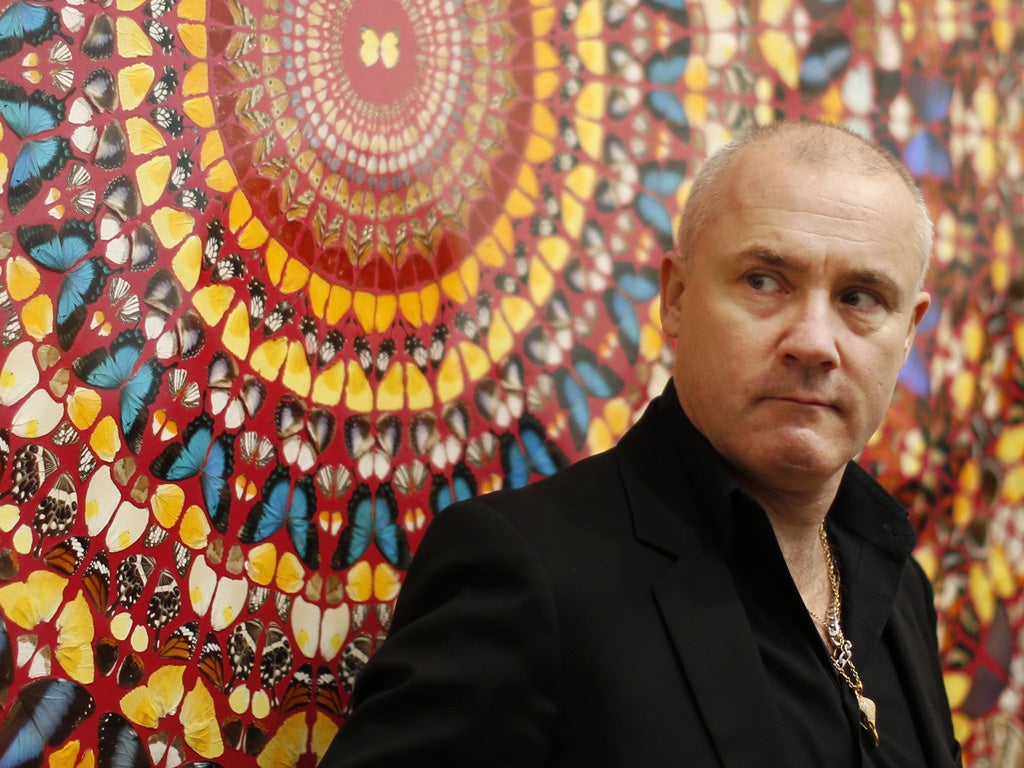David Lister: I've had enough of the critics who insist on telling the world what is and isn't art

Your support helps us to tell the story
From reproductive rights to climate change to Big Tech, The Independent is on the ground when the story is developing. Whether it's investigating the financials of Elon Musk's pro-Trump PAC or producing our latest documentary, 'The A Word', which shines a light on the American women fighting for reproductive rights, we know how important it is to parse out the facts from the messaging.
At such a critical moment in US history, we need reporters on the ground. Your donation allows us to keep sending journalists to speak to both sides of the story.
The Independent is trusted by Americans across the entire political spectrum. And unlike many other quality news outlets, we choose not to lock Americans out of our reporting and analysis with paywalls. We believe quality journalism should be available to everyone, paid for by those who can afford it.
Your support makes all the difference.What is it about art? Not art generally, as in culture, but art in particular, the visual arts. What is it about the visual arts that make people feel entitled to decree on behalf of the rest of the population what can and cannot be art?
This form of dogmatic assertion is particularly prevalent at the moment, with the opening this week of the Damien Hirst retrospective at Tate Modern. Britain's best-known conceptualist tends to bring out the latent cultural dogmatist in people.
The charge was led in this paper by Julian Spalding, himself a former modern art gallery director, who declared that Hirst "isn't an artist", as art has to be made, and similar mutterings can be heard in the rooms and restaurants at the Tate.
I was invited on to Sky News to join the "Is it art?" debate. I said it was, because I believe art is in the eye of the beholder, and if it has the power to move you, to make you think differently about life, about death, about mortality – and Hirst's haunting, preserved shark, and the diamond-studded skull, with its contrast of ephemeral glamour and permanence, certainly achieve that for me – then it is art. It is not just the making of something. It can be an idea that in visual form alters how we feel.
But what particularly intrigues me is that it is only the visual arts that breed this sort of exclusivity and arrogance, this sense of ownership of an art form that borders on cultural fascism. The stage seems able to embrace not just drama, but rehearsed readings, presentations of transcripts of court cases and public inquiries, monologues and what have you. No one ever says "This is not theatre", no matter how tenuous the dramatic content.
That is because theatre does not have the "art police". The art police, in fact, exist in no other art form. The art police will decide on behalf of those of us who dare to be moved by a piece in a gallery whether we are allowed to be. The art police take it upon themselves to draw up the rules that allow anyone into the art club, or deny them membership. The art police are worryingly reminiscent of real police, politicians and religious leaders in totalitarian times, who the power to decide what could and could not be art.
It's a strange irony that the art form with a history of championing bohemianism, experimentalism, radicalism and rule-breaking is the only art form to have spawned its own cultural police.
Perhaps other art forms should do the same. We can have pickets in Leicester Square with banners saying "This is not a film". People can sidle up to you in the queue at the Royal Festival Hall to whisper: "This is not classical music."
But better still would be for the art police to stand down, to dislike, deplore and despise Hirst if they wish, but to acknowledge that their contempt does not equate to the power to banish someone from art history.
Up-talked and upturned
Anachronism-spotting in TV period drama has become a national sport after some notable examples in The Hour, Downton Abbey and White Heat. But this week I spotted one in Julian Fellowes's series Titanic that was not an out-of-time phrase, prop or costume, but a matter of tone.
When asked where she was working, one of the waitresses said: "I'm serving in the first class dining room?" Her voice went up into a question at the end of the sentence. So-called "up-talking" is, of course, ubiquitous now. But I'd venture that the speech mannerism barely existed in Britain 30 years ago, and most certainly didn't exist in 1912. Then, you answered a question with an answer.
It can't be laid at the door of Mr Fellowes, but actress and director need to be put on anachronism watch.
Neeson sets the benchmark
I'm not sure what it is about actors that makes them, more than any other profession, say things that cry out to be in a dictionary of pretentious quotations. It happens so often that after a while one stops even noticing it. But I found it hard not to sit up and delight in a response from film star Liam Neeson, when he was asked about music in yesterday's paper. "I stopped listening to music when John Lennon was shot," he replied. Mmmm. Perfect. Other thespians can eat their hearts out. They're not going to better that.
Join our commenting forum
Join thought-provoking conversations, follow other Independent readers and see their replies
Comments